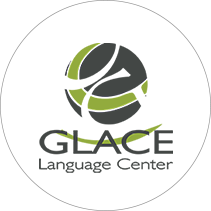Certification
The certificates of linguistic competence have already become a recognized benchmark in the labor market and a decisive factor in the academic one. Having proof of English proficiency gives a personal advantage to face this globalized world. GLACE Language Center’s academic processes are subjected to the European Common Framework of Reference for Languages. Read more about the European Common Framework
International Certifications
English
(Cambridge)
Cambridge University issues lifelong certifications across all countries. Cambridge University’s qualifications are considered the most reliable and solid evidence of English proficiency.
- Young Learner Tests
- Young Learners English: Starters
- Young Learners English: Movers
- Young Learners English: Flyers
These are exams designed specifically for kids and pre-teens, its objective is to motivate and acknowledge the achievements made in the process of learning English. They are comprehensive exams due to the fact that the four skills are evaluated.
There are three levels of Cambridge English: Young Learners: Starters, Movers and Flyers.
These tests are designed in such a way that children can learn progressively. They start by learning words and simple phrases for Starters, so that later on they can use a richer and wider vocabulary for Movers and Flyers.
Also known just as Starters, represents the beginning of the child’s language learning process. This exam introduces everyday spoken and written language in a fun and enjoyable way.
Also known just as Movers, represents the next step in the child’s language learning process. Taking Movers test is the best way to help children develop their language skills and make progress in their language acquisition.
Also known just as Flyers, represents the next step in the child’s language learning process. Taking Flyers test is the best way to demonstrate that children can use every day spoken and written English at a basic level.
- Main Suite for Schools
- Main Suite General
Middle-school and high-school students have various options to consolidate their English studies. Cambridge University’s Language Assessment Certifications are the most recognized throughout the world by academic institutions, as well as, corporations.
Cambridge English: First for Schools. ECFR Level B2
First Certificate in English (FCE) for Schools
Getting ready to achieve success in the real world.
Cambridge English: First is widely recognized in the academic and the working world. It’s a valuable qualification for students’ educational path.
Cambridge English: Preliminary for Schools. ECFR Level B1
Preliminary English Test (PET) for Schools
Everyday practical English.
It’s an intermediate common English exam.
Cambridge English: Key for Schools. ECFR Level A2
Key English Test (KET) for Schools.
First big step to learn English.
It’s a beginner every day English certificate.
General public have various options to consolidate their English studies. Cambridge University’s Language Assessment Certifications are the most recognized throughout the world by academic institutions, as well as, corporations.
Cambridge English: Proficiency. ECFR Level C2
Certificate of Proficiency in English (CPE)
The evidence of a first-rate English proficiency.
Cambridge English: Proficiency embodies an outstanding achievement of the use of English, both spoken and written, with the fluency and precision similar to a native speaker’s.
Cambridge English: Advanced. ECFR Level C1
Certificate in Advanced English (CAE)
Cambridge English: Advanced is accepted internationally to conduct college level studies, in addition to being recognized as a qualification fitting for an international negotiations environment at a managerial level.
Cambridge English: First. ECFR Level B2
First Certificate in English (FCE)
Getting ready to achieve success in the real world.
Cambridge English: First is widely recognized in the academic and the working world. It’s a valuable qualification for students’ educational path.
Cambridge English: Preliminary. ECFR Level B1
Preliminary English Test (PET)
Everyday practical English.
It’s an intermediate common English exam.
Cambridge English: Key. ECFR Level A2
Key English Test (KET)
First big step to learn English.
It’s a beginner every day English certificate.
- The Teaching Knowledge Test
It’s a series of teacher training certifications. There are several modules.
Basic modules (TKT1, TKT2 and TKT3) address themes according to the international standards of teaching, learning and assessing ESL. Reflecting on the communication skills and the language acquisition process, lesson planning, class management, dosing programs and selecting resources. These modules are designed for teachers with or without previous experience, but with an English proficiency level B1.
Specialty modules are designed for experienced teachers, preferably with an English proficiency level B2 or C1. These are focused on specific areas:
TKT YL: for teachers working with students aged between 6 and 12.
TKT CLIL: for teachers working with teenagers or young adults, as well as, teaching different subjects in English, such as Science, History or Geography.
TKT KAL: it’s focused in the linguistic knowledge of English language.
Chinese-Mandarin
(Confucius Institute)
Confucius Institute is the Asian agency in charge of the broadcast, teaching and certification of Chinese language and culture throughout the world. HSK (Hanyu Shuiping Kaoshi) or the Chinese Proficiency Test is an international standardized exam which tests and rates Chinese language proficiency. It assesses non-native Chinese speakers’ abilities in using the Chinese language in their daily, academic and professional lives.
HSK 1 assesses test takers’ abilities in the application of everyday Chinese (Mandarin). Test takers who are able to pass the HSK 1 can understand and use very simple Chinese phrases, meet basic needs for communication and possess the ability to further their Chinese language studies. This test is intended for students who have studied Chinese for a semester (half an academic year).
HKS 1 is recommended for those students who have studied Chinese as a foreign language for an academic semester, around 2 to 3 hours per week and have mastered 150 commonly used words and basic grammar patterns.
HSK 2 assesses test takers’ abilities in the application of everyday Chinese (Mandarin). Test takers who are able to pass HSK 2 have an excellent grasp of basic Chinese and can communicate in simple and routine tasks requiring a simple and direct exchange of information on familiar and routine matters.
HSK 2 is intended for students who have studied Chinese for two semesters (an academic year), with 2-3 class hours in each week. These students have mastered 300 commonly used words and related grammar patterns.
HSK 3 assesses test takers’ abilities in the application of everyday Chinese (Mandarin). Test takers who are able to pass the HSK 3 can communicate in Chinese at a basic level in their daily, academic and professional lives. They can manage most communication in Chinese when travelling to China.
HSK 3 is intended for students who have studied Chinese for three semesters (one and a half academic years), with 2-3 class hours each week. These students have mastered 728 commonly used words and related grammar patterns.
HSK 4 assesses test takers’ abilities in the application of everyday Chinese (Mandarin). Test takers who are able to pass the HSK 4 can sustain a conversation in Chinese on a wide range of topics and are able to communicate fluently with native Chinese speakers.
HSK 4 is intended for students who have studied Chinese 2-4 class hours per week for four semesters (two academic years). These students have mastered 1,200 commonly used words and related grammar patterns.
HSK 5 assesses test takers’ abilities in the application of everyday Chinese (Mandarin). Test takers who are able to pass the HSK 5 can read Chinese newspapers and magazines, enjoy Chinese films and plays and give a full-length speech in Chinese.
HSK 5 is intended for students who have studied Chinese 2-4 class hours per week for more than two academic years. These students have mastered 2,500 commonly used words and related grammar patterns.
HSK 6 assesses test takers’ abilities in the application of everyday Chinese (Mandarin). Test takers who are able to pass the HSK 6 can easily comprehend written and spoken information in Chinese and can effectively express themselves in Chinese, both orally and on paper.
HSK 6 is intended for students who have mastered 5,000 or more commonly used words.
French
(DELF)
DELF (Diplôme d'Etudes en Langue Française) and DALF (Diplôme Approfondi de Langue Française) are official qualifications awarded by the French Ministry of Education to certify the competency of candidates from outside France in the French language. DELF and DALF are composed of 6 independent diplomas that correspond to the levels of the Common European Framework of Reference for Languages
This level recognizes basic knowledge. It is the most basic level at which a language is used, called the "discovery" stage. At this stage, the learner can interact in a simple way: he/she can speak about him/herself and his/her immediate environment.
DELF A2 is based on the same principle: it recognizes the linguistic competency of a basic user, considered as a social actor. The candidate can communicate in simple and routine tasks requiring the most common polite phrases and exchanges of information.
At this level, the user becomes independent. He/she can maintain interaction: he/she can understand and maintain a discussion and give his/her opinion. He/she is capable of dealing with situations likely to arise in daily life.
A B2 user has a degree of independence that allows him/her to construct arguments to defend his/her opinion, explain his/her viewpoint and negotiate. At this level, the candidate has a degree of fluency and spontaneity in regular interactions and is capable of correcting his/her own mistakes.
Language users at level C1 are independent. They can express themselves fluently and spontaneously. They have a large vocabulary and can choose the appropriate expression to introduce their comments. They can produce clear, well-structured discourse without hesitation and which shows controlled use of structures.
C2 users' proficiency in the language is illustrated by precision, appropriateness and fluency of expression. C2 candidates are capable of using the language for academic and advanced-level purposes.
online access
If you are already enrolled in any of our online courses, access by clicking the buttons below. If you are not subscribed yet, contact us to get your access.
National Certifications

Certification CENNI
Secretary of Public Education of Mexico created the National Language Level Certification (CENNI by its initials in Spanish), which is a document that allows a reliable and objective reference the proficiency level of language in several linguistic skills.

Certification SEGE
Second Language Certification issued by the Secretary of Public Education of San Luis Potosí with official academic value.















